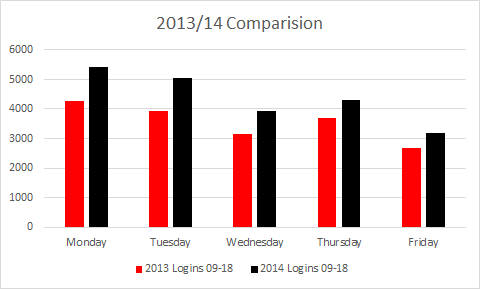The next series of Teaching Bites starts on Thursday 6th Nov (all are in S10). The sessions running are:
6th Nov: 13.00-14.00: Mobile
The new wireless service at the University opens up some exciting possibilities for student engagement in teaching and learning – laptops, tablets and smart phones can now quickly and easily connect to Eduroam and get Internet access. Students amongst other things can then participate in polls (rather similar to clicker technology) or tweet questions/comments.
13th Nov: 13.00-14.00: Module Design — Make Your Succeed a Better Place
Building a module in Succeed where the content is easy for the students to navigate is not as straight-forward as it might first appear. This session looks at some easy wins:
- Using Content Areas affectively
- Naming Content and the Description area
- Use of the Table of Content (left-hand menu/navigation)
- Consistency
20th Nov: 13.00-14.00: Quizzes/Surveys
The session will look at the Tests, Surveys and Pools area of Succeed. Users will be shown how to set up a test or a survey and how to add questions to it. An explanation of the available question types will be given. The session will also cover how to edit the settings for a test or survey so it is made available to the relevant users at the relevant time, including how to set up exceptions for AAA students who require more time to complete their assessments. An explanation will also be given of the question pool, and how to add questions to this pool, and how to select questions from the pool to add to tests and surveys.
27th Nov: 13.00-14.00: Discussion Tool, Blogs, and Wikis
This session will look at some of the collaboration tools within blackboard, these tools can be used to help build a sense of community in modules, can be used for group working, social interaction and the exchange of ideas. The session will look at the discussion tool, blogs and wikis and give examples of where these might be used successfully within your succeed module.
To sign-up go into Succeed and then to Learning & Development – My Learning, IT & Information Skills, Succeed Training. Also don’t forget to bring along your sandwiches!
These sessions can be available to remote campuses. To register for remote access please email Simon Booth.
